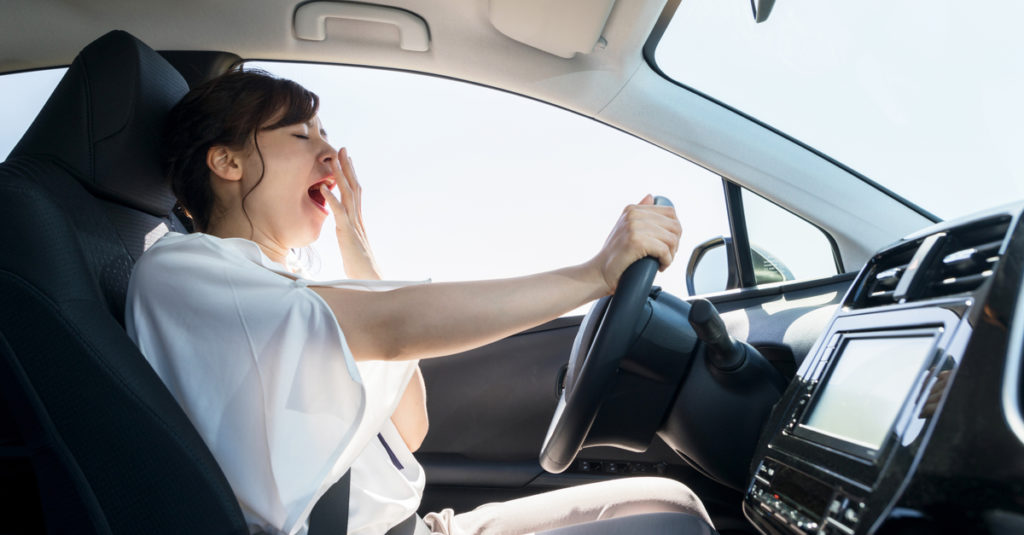Drowsy Driving: Tips for Staying Safe While on the Road
Thu 6 Aug, by FritzLaw on Personal Injury

You can likely remember an instance in the past when you came close to falling asleep while driving. Although you were fortunate enough to avoid an accident, the experience likely scared you a little bit, rightfully so.
The repercussions of drowsy driving are not something that many of us may take into consideration, unless we come close to, or are involved in an accident. In 2017, the National Highway Traffic Safety Administration (NHTSA) estimated that 795 people were killed and approximately 50,000 people were injured due to drowsy driving. In addition, accidents attributed to drowsiness are more likely to cause rear-end and head-on collisions and accidents that involve injuries or fatalities.¹ Although the statistics of drowsy driving are alarming, there are things you can do to avoid putting yourself in a risky situation.
Causes of Drowsy Driving
Drowsy driving can be caused by a variety of factors, all of which have the potential to cause an accident or present a dangerous situation while driving. If an individual has not slept properly or is suffering from an untreated sleep disorder (like sleep apnea), they can be at higher risk for accidents. Other factors that contribute to lack of sleep are taking medications, being employed as a night shift worker or consumption of alcohol. It is also noteworthy that many accidents involving sleepy drivers occur during the late afternoon or between midnight and 6 am.
The Centers for Disease Control and Prevention (CDC) note that the above risk factors can cause a driver to have a decrease in reaction time, be less attentive, and have an impaired decision-making ability.² Even if someone is able to stay awake, the longer they continue to push the boundary, the greater probability there is of putting themselves and others at risk of an accident.
Warning Signs
Although some people may not be aware of the risk of falling asleep, there are certain warning signs that we should be cognizant of when driving, especially at nighttime.
- Frequent yawning or blinking
- Difficulty remembering the past few miles driven
- Missing exits
- Drifting from one’s lane
- Hitting a rumble strip on the shoulder
Tips for Combating Drowsy Driving
If you have ever noticed that you were feeling sleepy while driving, you may have attempted to do things like turning up the radio, opening the window, or turning up your AC to keep yourself awake. These methods, however, are not recommended as they have not shown to be effective in making you more alert. Even drinking coffee is not the most effective means of keeping yourself awake. Though it may give you a temporary boost, the effects of caffeine may quickly wane, putting you at an even higher risk. Instead, try these methods to combat drowsy driving:
- Develop good sleep habits to ensure you get adequate sleep on a daily basis
- Watch out for warning signs of sleepiness (especially during later afternoon and nighttime)
- Avoid drinking alcohol after a long day
- If you take medications that make you drowsy, consider public transportation
- Get treatment for any sleep disorders
- Pull off the road to rest for a short period
Drowsy driving is a serious public health concern that touches the lives of many each year. In the event that you or one of your family members is injured in an accident that is someone else’s fault, please give us a call. We would love to help!
Sources:
¹https://www.nhtsa.gov/risky-driving/drowsy-driving
²https://www.cdc.gov/sleep/about_sleep/drowsy_driving.html
